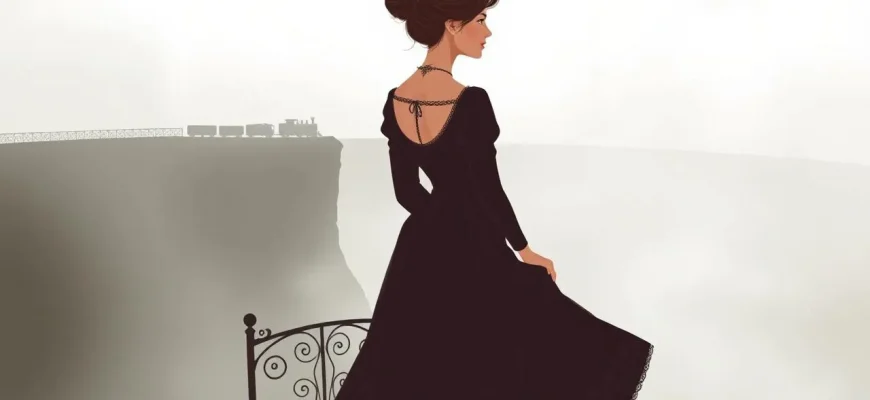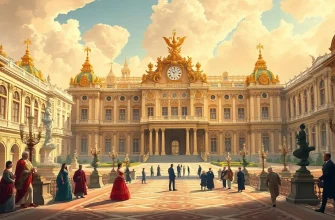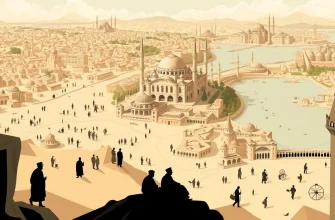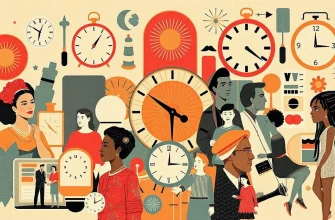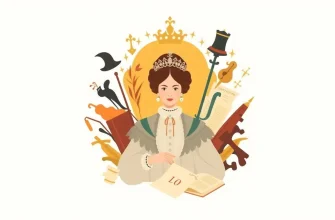The Victorian era, spanning from 1837 to 1901, was a time of profound change, innovation, and cultural shifts. This collection of biographical films delves into the lives of notable figures from this period, offering viewers a glimpse into the complexities of their personal journeys, societal norms, and historical events. Each film provides not just a narrative but a window into the past, making it an invaluable experience for history buffs, literature enthusiasts, and anyone fascinated by the human stories behind the era's grandeur.

The Picture of Dorian Gray (1945)
Description: This classic film adaptation of Oscar Wilde's novel delves into themes of beauty, morality, and the consequences of one's actions, set against the backdrop of Victorian London.
Fact: The film won an Academy Award for Best Cinematography, Black-and-White, and was nominated for several other Oscars, including Best Picture.
 Watch Now
Watch Now 
The Secret Garden (1993)
Description: This adaptation of Frances Hodgson Burnett's novel captures the essence of Victorian childhood, focusing on themes of healing, nature, and personal growth.
Fact: The film was shot in Yorkshire, England, providing an authentic backdrop to the story. It also received an Academy Award nomination for Best Art Direction.
 Watch Now
Watch Now 
Mrs. Brown (1997)
Description: This film explores the relationship between Queen Victoria and her Scottish servant, John Brown, after the death of Prince Albert. It's included for its depiction of Victoria's later years and her unconventional friendship.
Fact: Judi Dench's performance as Queen Victoria won her a BAFTA Award for Best Actress. The film was also nominated for an Academy Award for Best Makeup.
 Watch Now
Watch Now 
Wilde (1997)
Description: This film delves into the life of Oscar Wilde, capturing his wit, his literary genius, and his tragic downfall. It's included for its depiction of Wilde's personal life and the societal attitudes towards homosexuality in the Victorian era.
Fact: Stephen Fry, who played Wilde, was highly praised for his performance, and the film was nominated for a Golden Globe for Best Motion Picture - Drama.
 Watch Now
Watch Now 
The Importance of Being Earnest (2002)
Description: Although primarily a comedy, this film adaptation of Oscar Wilde's play offers insights into Victorian social customs and the absurdity of societal expectations, making it a unique addition to this list.
Fact: The film was shot at various historic locations, including Hatfield House, which was used as the setting for Lady Bracknell's home.
 Watch Now
Watch Now 
The Phantom of the Opera (2004)
Description: Set in the Victorian era, this film adaptation of Andrew Lloyd Webber's musical explores themes of love, obsession, and the darker side of human nature, making it a compelling addition to this list.
Fact: The film was shot at Pinewood Studios, with sets designed to replicate the Paris Opera House. It also features a performance by Emmy Rossum, who was only 17 at the time.
 Watch Now
Watch Now 
The Duchess (2008)
Description: This film tells the story of Georgiana Cavendish, Duchess of Devonshire, and her tumultuous life, offering a look at the constraints and expectations placed on women in the Victorian era.
Fact: Keira Knightley's performance as Georgiana earned her a nomination for the Golden Globe Award for Best Actress. The film was also nominated for three Academy Awards.
 Watch Now
Watch Now 
The Young Victoria (2009)
Description: This film chronicles the early life of Queen Victoria, focusing on her ascent to the throne and her romance with Prince Albert. It's a perfect addition to this list for its portrayal of royal life and the personal struggles of a young monarch.
Fact: Emily Blunt, who played Victoria, was nominated for a Golden Globe for her performance. The film was also shot in various historic locations, including Arundel Castle and Belvoir Castle.
 Watch Now
Watch Now 
The Woman in Black (2012)
Description: While primarily a horror film, it's set in the Victorian era and explores themes of grief, loss, and the supernatural, making it an intriguing addition for its atmospheric portrayal of the time.
Fact: The film is based on Susan Hill's novel of the same name and was a commercial success, grossing over $127 million worldwide.
 Watch Now
Watch Now 
The Invisible Woman (2013)
Description: A biographical drama about the secret love affair between Charles Dickens and Nelly Ternan, highlighting the societal constraints of the Victorian era. It's a must-watch for its exploration of personal relationships against the backdrop of literary fame.
Fact: The film was based on Claire Tomalin's book of the same name. Ralph Fiennes, who directed and starred in the film, was praised for his nuanced portrayal of Dickens.
 Watch Now
Watch Now 
